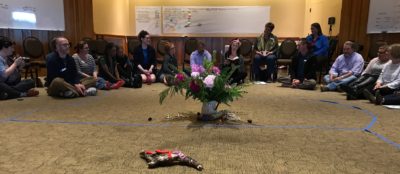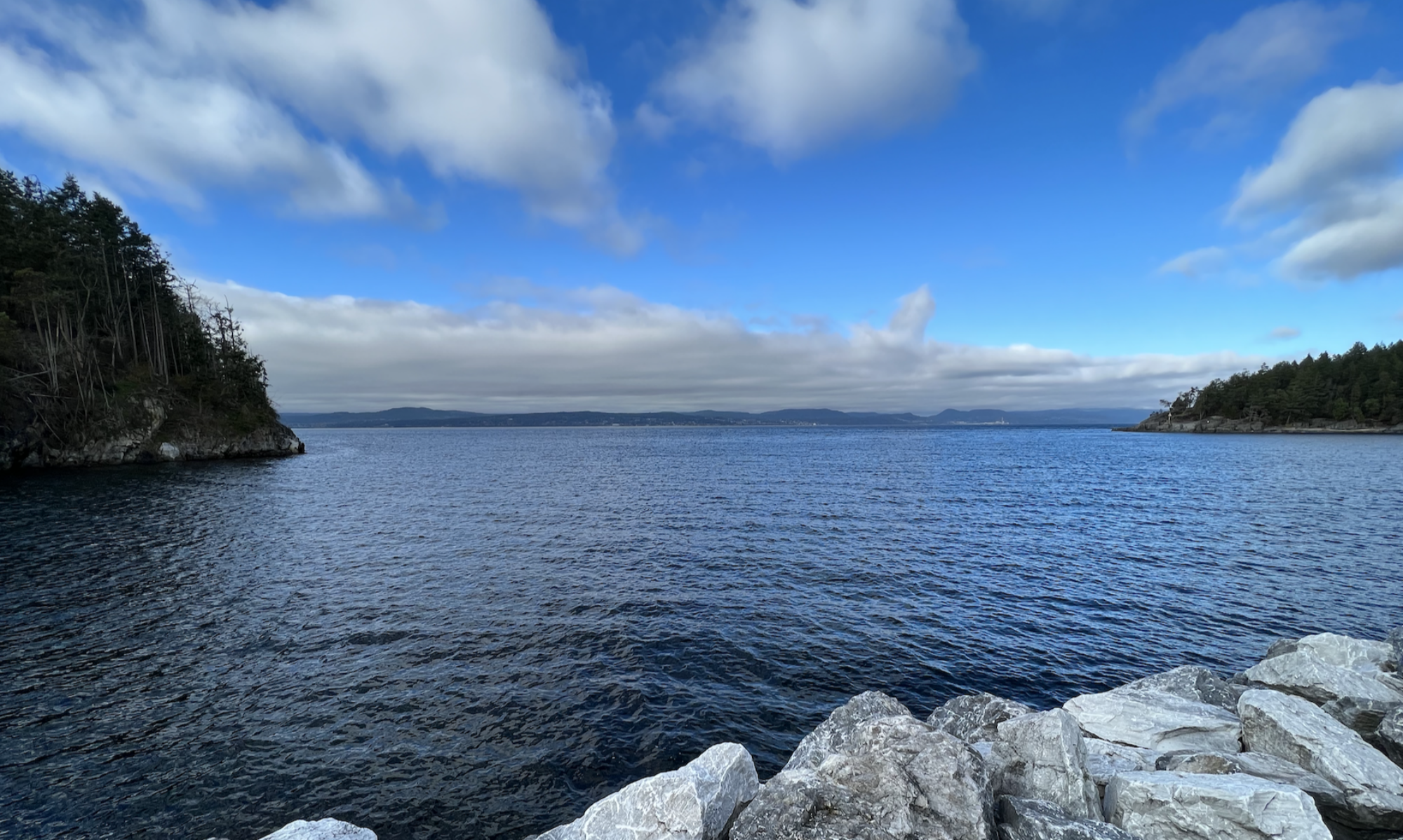
There are many narratives that I find myself invoking in the work I get to do. I’m talking about leadership trainings (like the one above, last week in Portland, Oregon), customized workshops, building communities of practice, hosting spaces for deep listening and good connection. I work and live in contexts in which the surface of attraction is often about getting tools and skills. These are good and important. However, the narrative that I add, to give context to those tools and skills, is most often about “being better humans.” That’s the crux of it to me, in leadership and community, inspired of course by my desire to be a better human myself.
By better humans, I don’t mean Version 3.0 of an impressive cyborg (it’s summer in the US — the inevitable movie releases are upon us). Better humans is not about more impressive science fiction and weaponry. Better humans is about a more radical simplicity together. Being able and expectant about listening with one another. Not groaning and tolerating sitting in a circle together — so that we can get back to the “real work” as quickly as possible — that’s more like enduring a scolding from a parent. Better humaning is about leaning in to the inherent subjectiveness of life. It is about being able to show up in learning, being willing to be in relationship together, being honest (in particular about the things that we don’t know), and being imaginative together (fed by the energy and spirit of the group).
In thinking about better humans, I’m reminded of Christina Baldwin’s distinction about two seemingly related concepts — “speed” and “pace.” Speed is the guy running through the airport talking on his cell phone. Pace is holding the hand of a toddler as you slowly walk around the block noticing butterflies, daisies, and squirrels.
Adding more tools to your tool box is impressive. And sometimes impressive in the way it expands to a tool bench. However, better humaning is more stories in you story-catcher. It’s about more appreciations of the human condition, whether in isolation or in community. Better humaning is the kindness in the eyes of the person using those tools to make a rocking horse for a grandchild — not just putting a new spin on manipulating a modality to get through a meeting.
Better humans. It’s my hope for me. It’s my hope for us. It’s willing to get on the floor, away from the powerpoint. It is the work.
